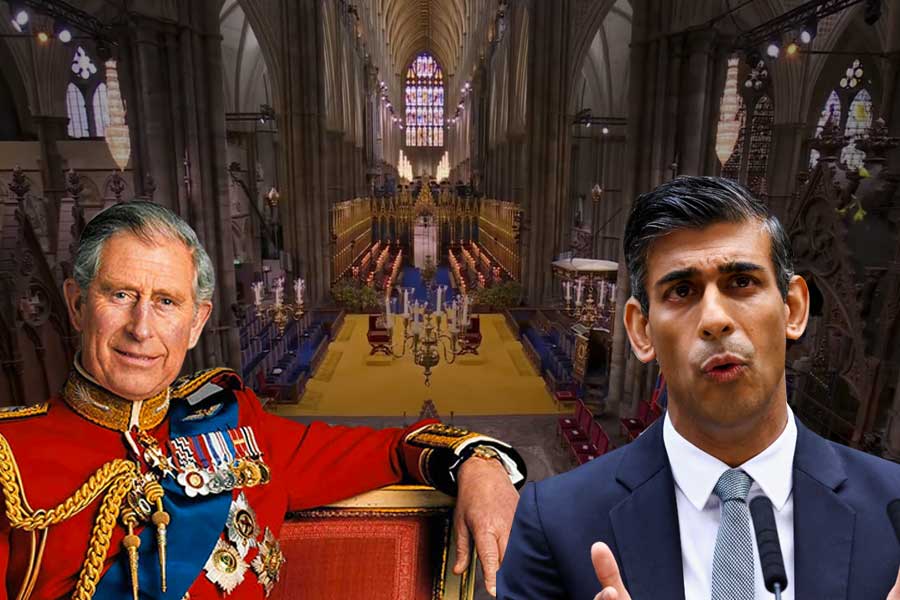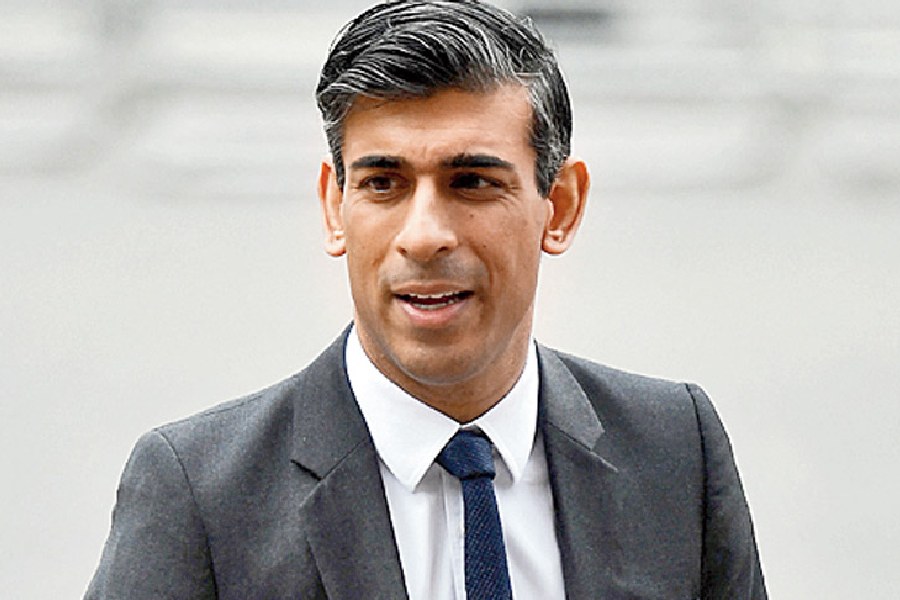Charles will be crowned the King of the United Kingdom amid spectacular pomp and pageantry at Westminster Abbey in London on Saturday in a solemn religious ceremony that dates back almost a thousand years.
Westminster Abbey has been the site of every British Coronation since that of William The Conqueror in 1066 and King Charles III and his wife, Queen Camilla, will follow in the footsteps of this grand tradition in a service themed “Called to Serve”.
The Service will be conducted by the Archbishop of Canterbury, the Most Reverend and Right Honourable Justin Welby, with faith leaders and representatives of the Hindu, Sikh, Muslim, Buddhist and Jewish communities processing through the Abbey ahead of the service.
“In the Abbey where monarchs have been crowned for almost a thousand years, representatives of every faith will play a central role for the first time,” said British Prime Minister Rishi Sunak, on the eve of the Coronation.
As the country’s first Hindu head of government, the 42-year-old will read from the biblical book Colossians 1:9-17 – a passage chosen by the Archbishop to reflect the theme of service to others.
Following a regal procession riding in the Diamond Jubilee State Coach bearing a gilded crown, the King and Queen will make their way to the Abbey from Buckingham Palace, accompanied by military personnel on foot and on horseback.
The streets of central London will be lined with thousands of well-wishers waving flags, alongside some groups of protesters who campaign for the abolition of the monarchy and have organised #NotMyKing protests at Trafalgar Square.
Once at the Abbey, the King will be greeted by a congregation of around 2,200 – made up of heads of state and government, worldwide royalty as well as community champions.
Vice-President Jagdeep Dhankhar and his wife Dr Sudeep Dhankhar are representing India on the historic occasion and will be seated alongside other Commonwealth Heads of State.
“The crowning of the Sovereign is an ancient ceremony, rich in religious significance, history and pageantry. The service is deeply sacred and traditional while reflecting the monarch’s role today and looking towards the future,” the palace said.
The King and Queen will arrive at the Chairs of Estate in the Coronation Theatre and will have a personal moment of silent prayer, as did his late mother Queen Elizabeth II during her Coronation in 1953.
The religious ceremony will be made up of five key stages: the Recognition; the Oath; the Anointing; the Investiture and Crowning; and the Enthronement and Homage.
“The Imperial State Crown, or Crown of State, is the crown the monarch exchanges for St. Edward's Crown at the end of the Coronation Service. The Imperial State Crown is also used on ceremonial occasions, such as the State Opening of Parliament,” the palace said.
Queen Camilla will wear Queen Mary's crown, which was designed for the coronation of June 1911 when it contained three large diamonds, including the controversial Kohinoor which was later replaced by crystal replicas.
The modern version designed for 75-year-old Camilla is minus the Kohinoor and made of a silver frame, lined with gold, and set with 2,200 diamonds, mainly brilliant-cut with some rose-cut.
While she will be “anointed” with holy oil in full public view, Charles will be anointed behind a cloth screen depicting a central design of a tree with branches filled with 56 leaves representing the Commonwealth of nations – including one of the leaves dedicated to India.
The holy Chrism oil consecrated at the Church of the Holy Sepulchre in Jerusalem will be symbolically touched on the monarch’s head, chest and hands as part of the religious ceremony.
Among others of Indian heritage in the gathering will be Bansari Ruparelia, a British Empire Medal (BEM) winner in recognition of her services to the community.
“Working on a volunteer basis, she provides support and care to people experiencing social isolation, an issue which she believes has become more widely acknowledged and recognised in the aftermath of the COVID-19 pandemic,” the palace said.
Another BEM winner, British Indian chef Manju Malhi, will join the likes of Sourabh Phadke, a graduate of the Prince’s Foundation – set up in Dumfries House, Scotland, by Charles as the Prince of Wales with a vision to provide holistic solutions to challenges facing the world. Gulfsha, winner of the Prince’s Trust Global Award and Indian-origin Jay Patel of Prince's Trust Canada are also among the selected invitees.
The two-hour-long ceremony at the Abbey will conclude with the chiming of Abbey bells and the newly crowned King and Queen making their way to another waiting horse-drawn historic Gold State Coach. Last seen during the Pageant of the Platinum Jubilee of Queen Elizabeth II in June 2022 and used at every Coronation since that of William IV in 1831.
Except for the headline, this story has not been edited by The Telegraph Online staff and has been published from a syndicated feed.












